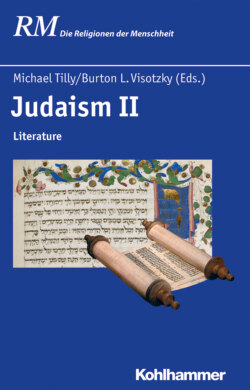Читать книгу Judaism II - Группа авторов - Страница 57
На сайте Литреса книга снята с продажи.
4.1.10 The Greek Versions and Christianity
ОглавлениеAt one time, the LXX was considered to be inspired scripture by both Jews and Christians, but now is sacred only for the Eastern Orthodox Churches. The translation started off as a Jewish enterprise (see § 4.1.4), and was accepted by the early Christians when they were still part of Judaism. Western Christianity held on to the LXX as scripture until the time of the Vulgate, which assumed official status in the Western Church some time after its creation. At an earlier stage Judaism had changed its approach toward the Jewish-Greek translation, when Jews turned their back on the LXX in the pre-Christian period, and to an even greater extent after the rise of Christianity. Already in the first century BCE it was realized that the Greek translation did not reflect the Hebrew Bible current in Palestine, and at that time the process of revision of the OG toward the proto-Masoretic Text started to take shape.
In the first century CE, when the NT writers quoted the earlier scripture, they used the wording of the LXX. That was a natural development since the NT was written in Greek, and under normal circumstances its authors would quote from earlier scripture written in the same language.
At the same time, as a result of Jews abandoning the Jewish-Greek translation in the first centuries CE, that translation was held in contempt in its own environment (Sof 1.7 and parallels) despite its being a Jewish biblical version. Whether or not rabbinic Judaism officially rejected the LXX is unclear, but it was definitely disregarded since the rabbis did not quote from it.
The LXX lost its central position in Judaism from the first century CE onward. Subsequently, this process was accelerated when that translation was used as the official source for scripture in the writings of early Christianity. Christians accepted the LXX generally without changing its wording. At the same time, they inserted some changes in the external features of scripture: Christian scribes adopted the codex instead of the scroll and they introduced abbreviations for the Greek divine names (ΚΣ [kyrios »Lord«], ΞΣ [theos »God«], and ΧΣ [christos »Christ«], etc.).
The LXX influenced the NT at various levels because early Christianity adopted the LXX as its scripture. The influence of the LXX is visible in the areas of the language, terminology, and theological foundations of the NT, as well as in its frequent quotations.
